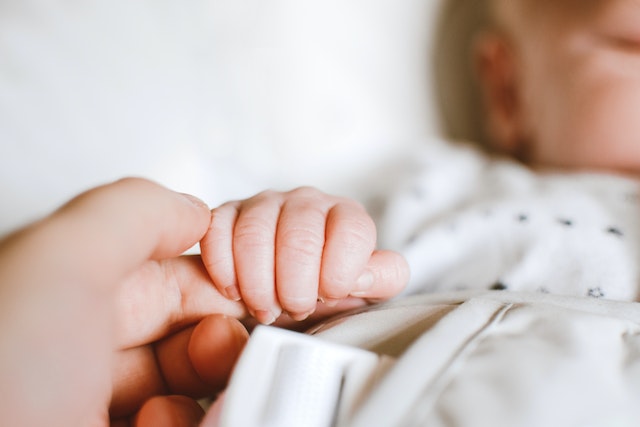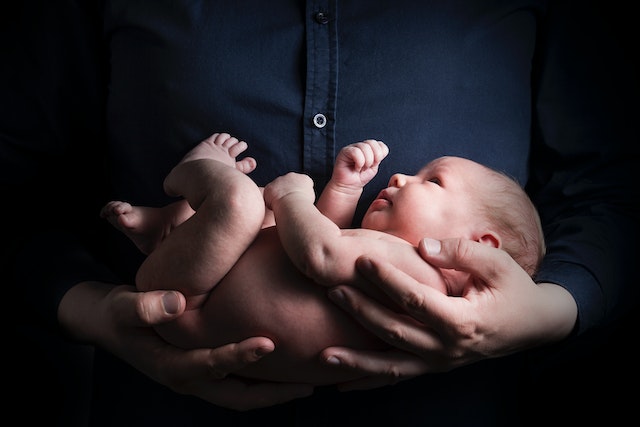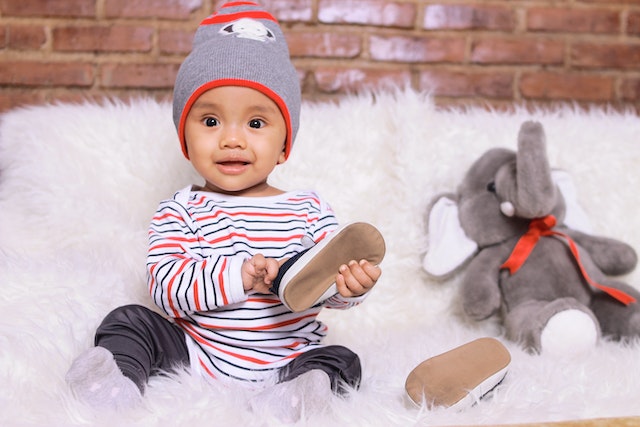Congratulations, you’ve just had a baby! As you enter this new and exciting chapter of your life, you’ll be filled with joy and anticipation as you watch your baby grow and develop. Every milestone, from the first smile to the first step, is a cause for celebration. This guide will provide information on the milestones your baby can expect to reach in their first year. As well as tips and advice on how to best support their development.
From the moment your baby is born, you can begin to look forward to the milestones and memories that will fill the first year of their life. So let’s get started!

An Overview Of Your Baby’s Milestones In The First Year
When caring for a newborn, it can be hard to keep track of all the different milestones your baby should reach in their first year. To make it easier, it’s helpful to break down the various milestones into three main categories: motor, cognitive, and emotional. Motor milestones are related to physical development and include things like sitting, crawling, and walking. Cognitive milestones are related to mental development and have things like language development, problem-solving, and memory. Finally, emotional milestones are related to social and emotional development and include things like smiling, expressing emotions, and bonding.
As your baby grows, they will reach these milestones at different times and at different rates. It’s important to remember that every baby is unique and that each one will reach these milestones in their own time. However, there are some general milestones that your baby should expect to achieve. By the age of 3 months, your baby should be able to smile and respond to your voice. By 6 months, they should be able to roll over, sit up, babble, and begin weaning. At 9 months, look for signs of crawling and mouthing objects. Finally, at 12 months, your baby should be able to stand and walk independently.
Motor Milestones: Sitting, Crawling, And Walking
When your little one is born, they will completely rely on you to move and explore the world around them. Then, as they grow, they will begin to develop the skills and abilities to move independently.
One of the first motor milestones is baby sitting up for first time. This usually occurs between 4 and 7 months of age. But can vary depending on your baby’s individual development. To help your baby reach this milestone, you can give them plenty of tummy time to strengthen their core muscles. You can also encourage them to practice by placing toys or other objects at a distance to motivate them to reach out and grab them.
Crawling is the next milestone that your baby will reach, usually between 6 and 10 months of age. To help your baby crawl, you can provide them with plenty of floor time to practice. Encourage them to crawl by placing toys or other objects at a distance to motivate them to move forward.
Finally, your baby will reach the walking milestone, usually between 9 and 15 months of age. To help your baby reach this milestone, you can encourage them to practice standing and taking steps by providing them with plenty of support. For example, provide them with toys that help them practice balance and coordination, such as a push toy or a baby walker.
Cognitive Milestones: Speech, Problem-Solving, And Memory
Along with physical development, your baby will also be developing cognitive skills. During the first year of life, your baby will learn to communicate with the world around them. This typically starts with babbling and cooing, eventually turning into words and phrases.
Your baby’s cognitive development is an incredibly important part of their overall development. One of the first cognitive milestones your baby will reach is language development. This usually starts with babbling and cooing, which generally occurs between 3 and 6 months of age. To help your baby develop language skills, you can read, sing, and encourage them to imitate your words and sounds.
Next, your baby will reach the milestone of problem-solving. Usually between 8 and 12 months of age. To help your baby reach this milestone, you can provide them with plenty of opportunities to explore and discover. Give them toys that help them practice problem-solving skills, such as stacking blocks or nesting cups.
Finally, your baby will reach the memory milestone, usually between 9 and 15 months of age. To help your baby reach this milestone, you can provide them with plenty of opportunities to practice their memory skills. You can also provide them with toys that help them practice memory skills, such as shape sorters or memory games.
Emotional Milestones: Smiling, Expressing Emotions, And Bonding
Your baby’s emotional development is equally as important as their physical and cognitive development. During the first year, your baby will learn to express their emotions through smiles, cries, and other facial expressions. They will also start to understand and respond to emotions in the people around them.
One of your baby’s first emotional milestones is the ability to smile. Which usually occurs between 4 and 6 weeks of age. To help your baby reach this milestone, provide them with plenty of love and attention. You can also encourage them to practice their smile by making silly faces or making funny noises.
Next, your baby will reach the milestone of expressing emotions. Usually between 6 and 9 months of age. To help your baby reach this milestone, you can give them as many opportunities as possible to experience different emotions. You can also provide them with toys that help them practice expressing feelings, such as dolls or stuffed animals.
Finally, your baby will reach the milestone of bonding. Usually between 9 and 12 months of age. To help your baby reach this milestone, you can provide them with plenty of comfort and security. The toys used to help practice expressing emotions are also perfect for bonding. Dolls and stuffed animals give them something to care for and build relationships with.

Tips For Supporting Your Baby’s Development
As a parent, it is essential to provide your baby with the best possible environment for learning and development. This can be done by creating a stimulating environment with plenty of opportunities for play and exploration. You can also talk to your baby in a gentle and encouraging manner. This will help them to learn the language and develop their communication skills. Finally, ensuring that your baby is getting enough sleep is important. Getting adequate sleep is essential for brain development, so ensure your baby is getting the proper rest.
Activities For Facilitating Development And Bonding
There are a variety of activities that you can do with your baby to help facilitate their development. These include reading books, playing peek-a-boo, singing songs, and having tummy time. You can also use toys and objects to help your baby learn and explore. Not only are these activities great for your baby’s development, but they also provide an opportunity for you to strengthen the bond with your little one.
The Importance Of Playtime And Stimulation
Playtime is an essential part of your baby’s development. Not only does it provide them with an opportunity to explore the world around them, but it also helps to stimulate their minds. As a result, playing with your baby can help to improve their cognitive and problem-solving skills. As well as their language and communication skills. It is also an excellent way for you to bond with your baby, as it helps to create a sense of trust and security.
Playtime helps your baby to explore and learn about the world around them, while stimulation helps to strengthen their cognitive, emotional, and physical abilities. So it’s crucial to provide your baby with plenty of opportunities for playtime and stimulation. This can include reading stories, singing songs, playing games, and exploring their environment. You can also give your baby toys and other objects they can explore and interact with. And don’t forget to provide your baby with plenty of physical activity. This can include tummy time, walking, and playing with other children. Remember that physical activity helps to strengthen your baby’s muscles and improve their coordination and balance.
Finally, give your little one plenty of social interaction. This includes talking to them, playing with them, and introducing them to other children and adults. Social interaction helps to strengthen your baby’s emotional development and allows them to learn how to interact with others.
Resources For New Parents
Caring for a newborn can be a daunting task, so it is essential to have access to resources and support. For example, you can check out your local library for books and videos on baby development and growth. You can also look online for websites and blogs that provide information and advice on baby milestones and development. These resources can provide information on baby milestones and development, as well as tips and advice on parenting.
It’s also important to reach out to friends and family for support. They can offer you guidance and comfort during this exciting time. Finally, you can always ask your doctor or healthcare provider for advice and recommendations.

Conclusion: Cherish Every Moment
The first year of your baby’s life is an exciting and joyous time. As your baby grows and develops, it is important to cherish every moment and milestone. By providing your baby with the best environment for learning and development, you can help them reach their potential. With the right resources and support, you can make the most of this special time and create lasting memories.
Congratulations on your little one! And remember to enjoy every moment.
